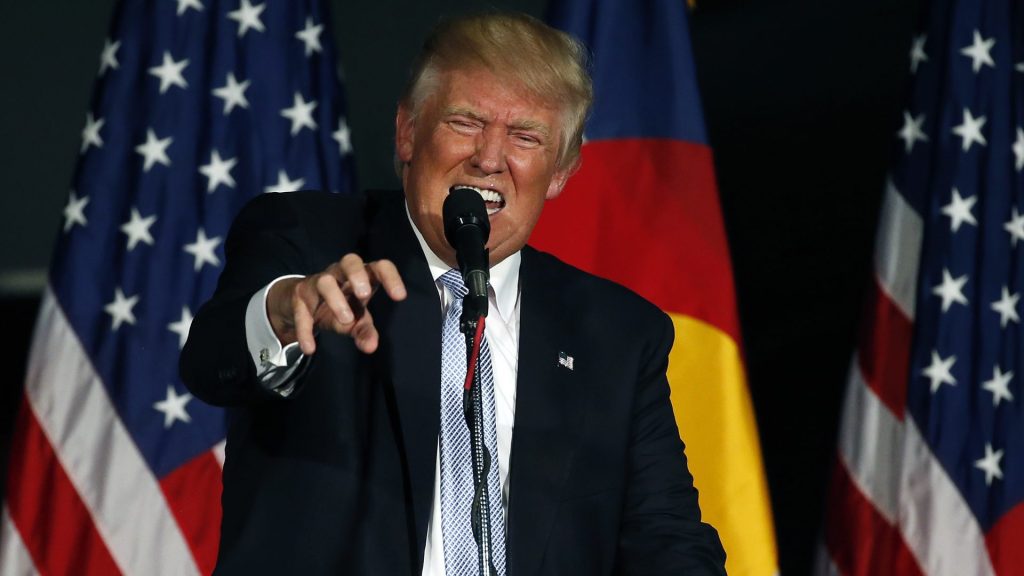The recent buzz around the potential involvement of former U.S. President Donald Trump in securing the release of Imran Khan, the imprisoned former Prime Minister of Pakistan, reveals a fundamental miscalculation by Khan’s supporters.
This hope, predominantly fueled by PTI’s diaspora and social media propaganda, reflects a desperate attempt to draw international attention to Khan’s plight. However, a closer examination suggests that such expectations are both unrealistic and misplaced.
Firstly, the belief that Trump, or any U.S. leader, would intervene to secure Khan’s release overlooks the intricacies of Pakistan-U.S. relations.
While Trump and Khan might have shared a superficial camaraderie during their respective tenures, the relationship between the two nations remained transactional and primarily driven by strategic objectives, such as facilitating the U.S. withdrawal from Afghanistan. Even during this period of “improved ties,” Washington prioritized its broader geopolitical interests over personal relationships.
The PTI’s narrative romanticizes this brief period of cooperation while ignoring the fact that Trump’s administration openly criticized Pakistan, including halting crucial military aid and suspending Coalition Support Funds.
This contradiction raises questions about the PTI’s expectations of American intervention, especially from an administration that historically emphasized Pakistan’s accountability over strategic partnerships.
Secondly, the dynamics of U.S. foreign policy make it highly unlikely for Washington to intervene in favor of a politically controversial and unpredictable figure like Khan. The United States has historically maintained a strong institutional relationship with the Pakistani military, which serves as a cornerstone of bilateral ties.
This relationship, built over decades, often supersedes transient political developments. Supporting Khan, who has repeatedly criticized the U.S. for alleged interference and blamed it for his ouster in 2022, would undermine these long-standing ties.
Khan’s anti-U.S. rhetoric, which he used to consolidate domestic support, has not only strained public perception of the U.S. in Pakistan but also alienated him from policymakers in Washington.
His narrative of blaming the U.S. for domestic political woes might have resonated with his base, but it did little to endear him to a country he now hopes will act as a savior. This contradiction further weakens the credibility of PTI’s lobbying efforts abroad.
Additionally, the PTI’s reliance on social media campaigns and AI-generated propaganda, such as fake images of Trump advocating for Khan’s release, reflects a shallow strategy that risks backfiring. Such tactics not only undermine PTI’s credibility but also highlight its desperation to manufacture support. These gimmicks, while temporarily energizing Khan’s supporters, fail to address the political realities that shape U.S.-Pakistan relations.
The narrative of U.S. intervention also disregards the larger implications for Pakistan’s sovereignty and internal stability. For a party that has long championed the idea of an independent Pakistan, seeking foreign interference in domestic affairs is not only ironic but also counterproductive. It reinforces perceptions of PTI’s inconsistency and undermines its claims of standing against external influence.
Moreover, the emphasis on Trump’s potential role distracts from PTI’s own failures and political missteps. Khan’s government faced significant criticism for its governance, economic policies, and handling of key issues during his tenure. His reliance on populist rhetoric and polarizing tactics has left Pakistan more divided than ever.
Instead of focusing on rebuilding its political credibility domestically, PTI seems intent on projecting an external scapegoat to shift blame for its current predicament.
Ultimately, the speculation surrounding Trump’s involvement is symptomatic of PTI’s broader approach to politics: one rooted in sensationalism, shallow alliances, and a disregard for pragmatic realities. While Khan’s supporters may continue to lobby abroad and flood social media with narratives of injustice, the likelihood of meaningful U.S. intervention remains minimal.
Pakistan’s political future hinges on addressing its internal challenges through dialogue, reforms, and accountability, not on seeking external validation or intervention.
PTI’s attempts to involve the U.S. in its domestic struggles not only undermine its credibility but also distract from the pressing issues that demand attention. For Pakistan to move forward, it needs leadership focused on unity and progress rather than relying on external actors to resolve its internal crises.


